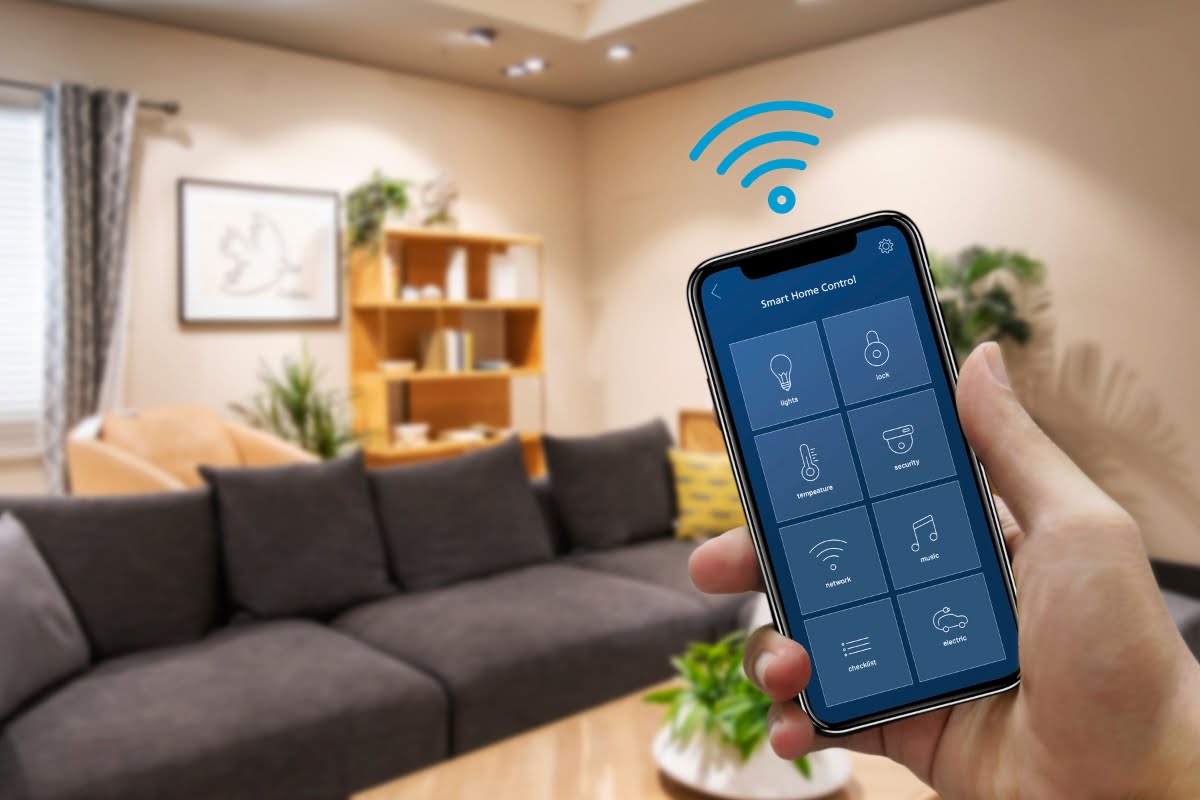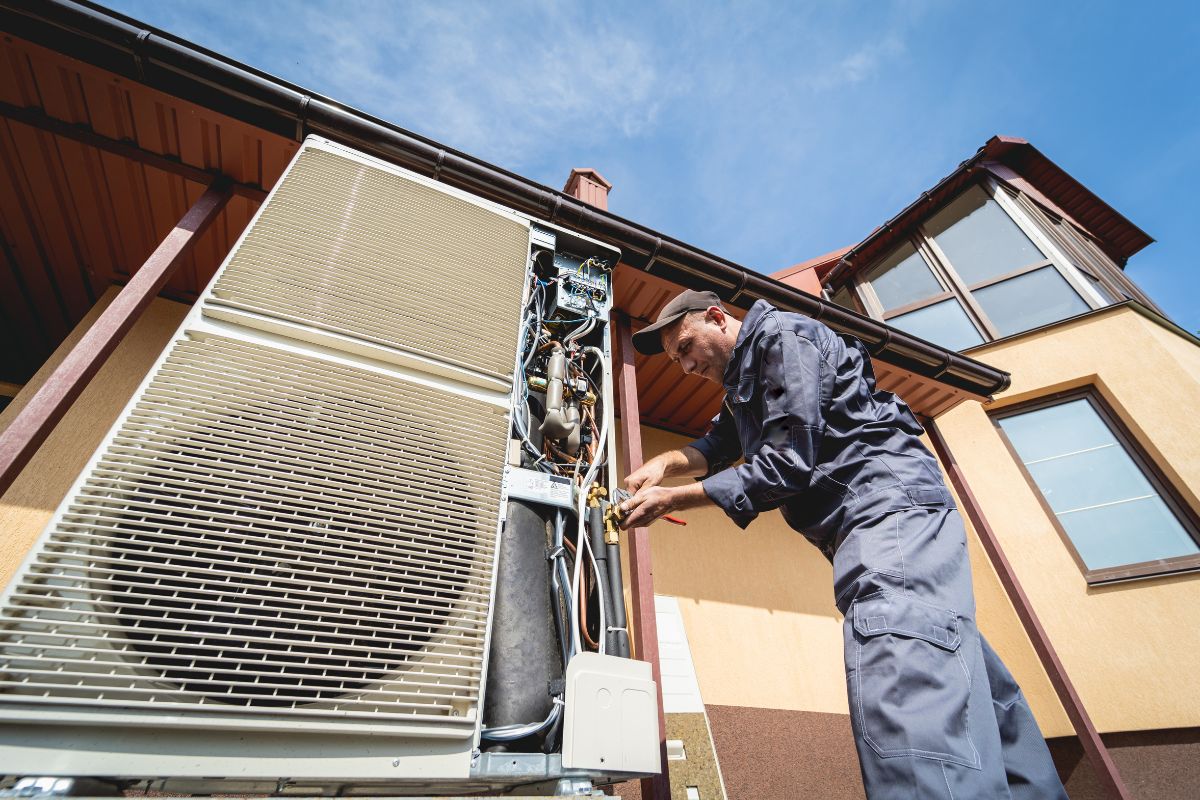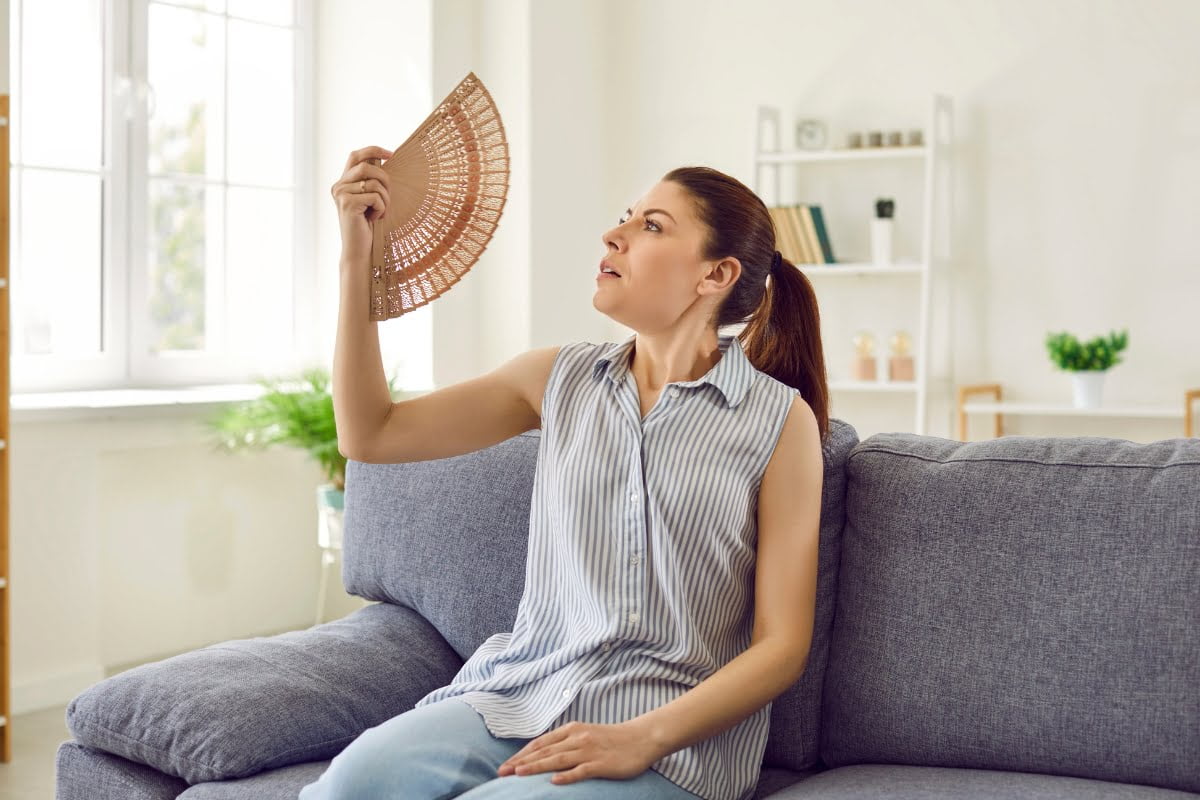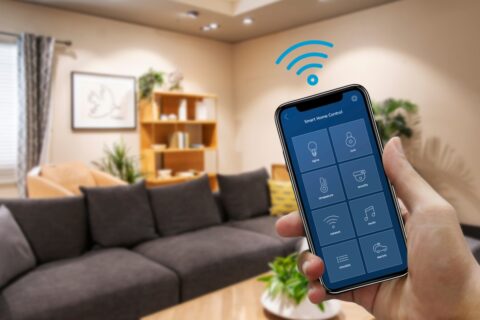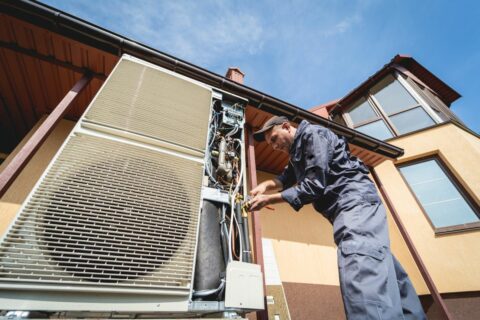Are you tired of breathing in stale, dusty air in your own home? Do you find yourself constantly sneezing or suffering from allergies? It’s time to take control of the air quality in your home and start breathing fresh, clean air. In this blog post, we will explore how your HVAC system plays a vital role in maintaining a healthy indoor environment and ensuring that you and your family can enjoy the benefits of clean air.
From understanding the importance of regular maintenance to exploring the role of air filters, we will equip you with the knowledge to take control of your HVAC air quality and create a healthier home environment for you and your loved ones. So sit back, take a deep breath, and get ready to discover the secrets to breathing fresh and clean air in your home.
HVAC Air Quality: Is Your Breathing Space Healthy and Fresh?
The Importance of HVAC Systems in Maintaining Air Quality
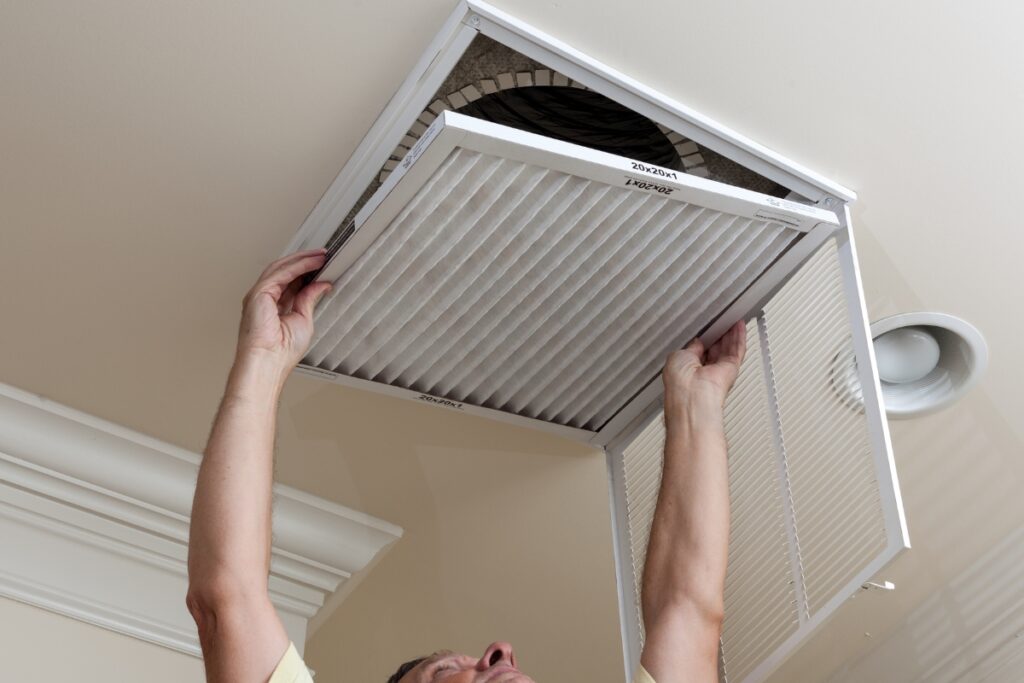
Your HVAC system plays a crucial role in maintaining the air quality in your home. It is responsible for filtering out pollutants, allergens, and other contaminants that can have a negative impact on your health. By ensuring that your HVAC system is properly maintained and optimized, you can breathe in nothing but fresh, clean air.
One of the main reasons why HVAC air quality is so important is because we spend a significant amount of time indoors. Based on research conducted by the Environmental Protection Agency (EPA), they have found that Americans spend about 90% of their time indoors.
The problem is that the indoors is where the concentration of pollutants can be two to five times higher than outdoor levels. This means that the air we breathe inside our homes can have a direct impact on our health and well-being.
Poor indoor air quality has been linked to a wide range of health issues, including respiratory problems, allergies, asthma attacks, and even cardiovascular diseases. It can also worsen existing conditions such as chronic obstructive pulmonary disease (COPD) or make symptoms more severe for individuals with compromised immune systems.
Understanding the Impact of Indoor Air Quality on Health
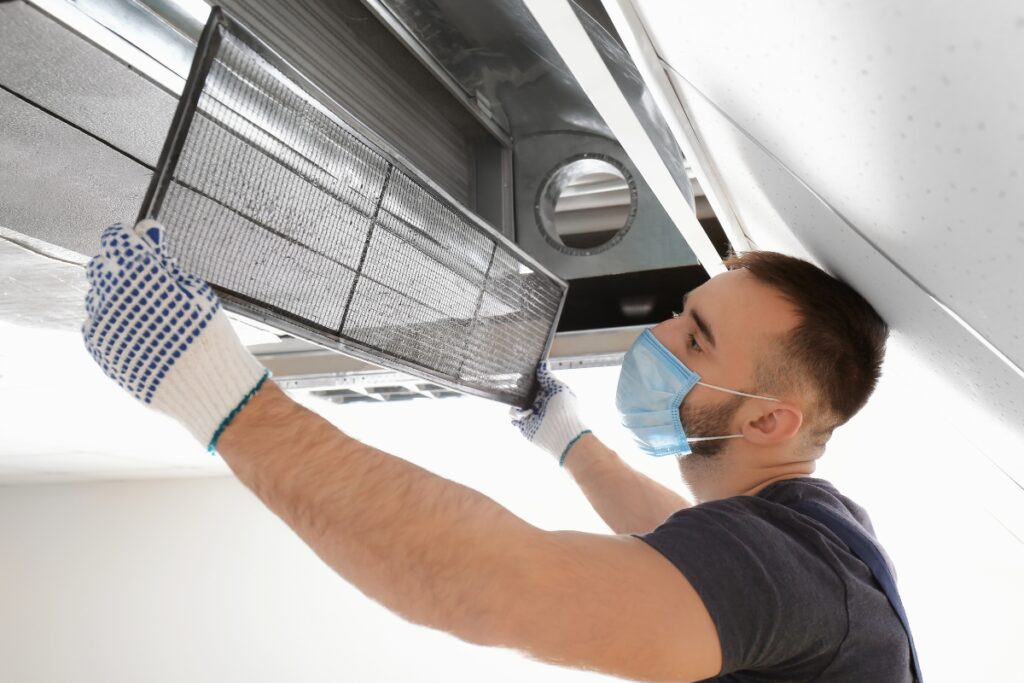
The quality of the air we breathe indoors has a direct impact on our health. Poor indoor air quality can lead to various respiratory problems and allergies. It can also trigger asthma attacks or worsen existing respiratory conditions such as COPD.
Airborne pollutants such as dust mites, pet dander, pollen, mold spores, and volatile organic compounds (VOCs) are common culprits when it comes to poor indoor air quality. These contaminants can irritate the respiratory system and cause symptoms such as coughing, sneezing, wheezing, shortness of breath, and itchy or watery eyes.
In addition to respiratory issues, poor indoor air quality can also have a negative impact on cardiovascular health. Studies have shown that long-term exposure to indoor air pollutants can increase the risk of heart disease, stroke, and other cardiovascular conditions.
Common Pollutants and Contaminants Found in Indoor Air
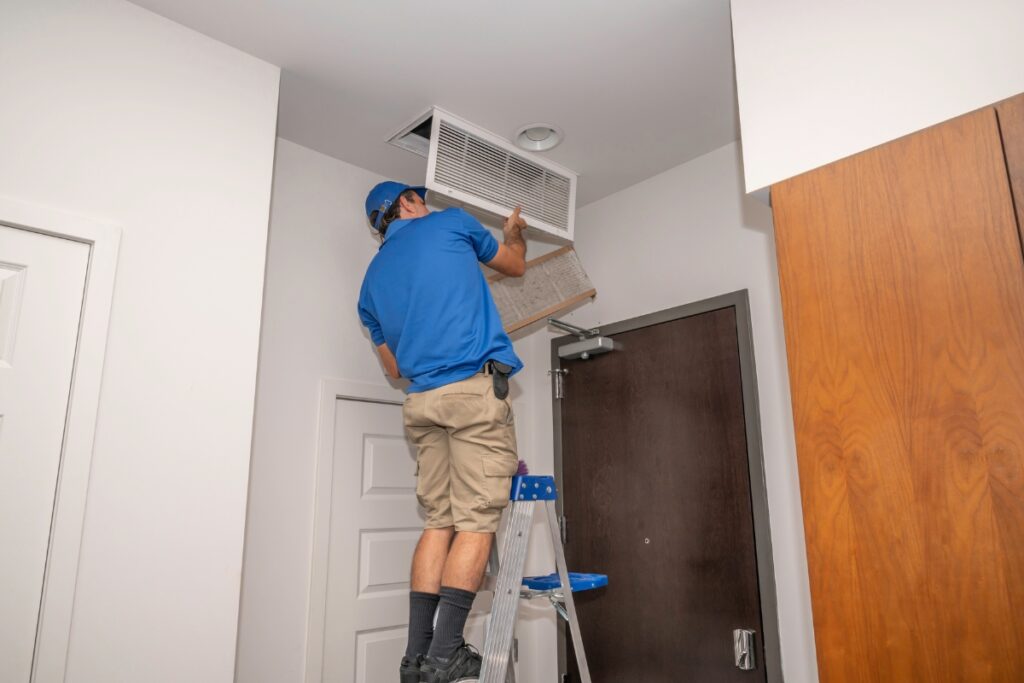
There are several common pollutants and contaminants that can be found in indoor air. These include:
The Role of Air Filters in Improving Air Quality
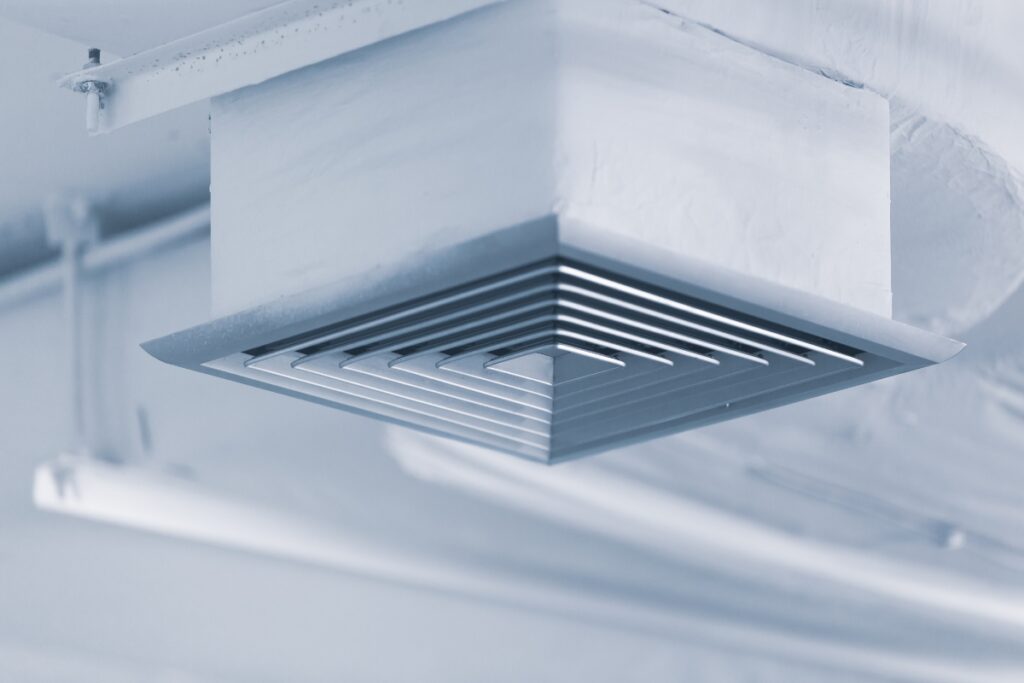
Air filters play a crucial role in improving the air quality in your home. They are designed to capture and remove airborne particles, pollutants, and contaminants from the air, ensuring that you breathe in clean and fresh air.
There are different types of air filters available for HVAC systems, ranging from basic fiberglass filters to high-efficiency particulate air (HEPA) filters. The effectiveness of an air filter is measured by its Minimum Efficiency Reporting Value (MERV) rating. The higher the MERV rating, the more efficient the filter is at capturing smaller particles.
When choosing an air filter for your HVAC system, it’s important to consider your specific needs. If you or your family members suffer from allergies or asthma, a filter with a higher MERV rating may be more suitable as it can capture smaller allergens and pollutants. However, it’s important to note that higher MERV-rated filters may also restrict airflow if not properly maintained or if your HVAC system is not designed to handle them.
Choosing the Right Air Filter for Your HVAC System
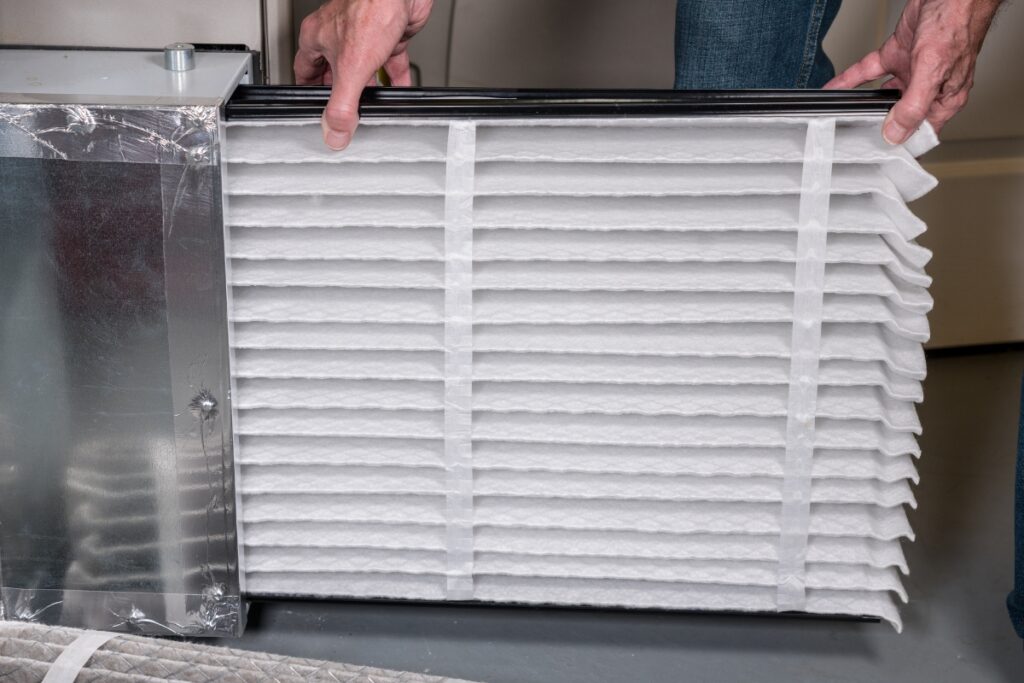
When it comes to maintaining good air quality in your home, one of the most important factors to consider is your HVAC system. An HVAC system helps regulate the temperature in your home, but it also plays a crucial role in filtering the air you breathe. To ensure that you are breathing fresh and clean air, it is essential to choose the right air filter for your HVAC system.
The first step in choosing the right air filter is understanding the different types available. There are several types of air filters, including fiberglass, pleated, electrostatic, and high-efficiency particulate air (HEPA) filters. Each type has its own unique features and benefits, so it’s important to consider your specific needs and preferences.
Fiberglass filters are the most common and affordable option. They are designed to capture larger particles such as dust and debris, but they may not be as effective at filtering smaller particles or allergens. Pleated filters, on the other hand, have a larger surface area and can capture smaller particles more efficiently. They are a popular choice for those who suffer from allergies or asthma.
Electrostatic filters are another option to consider. These filters use an electric charge to attract and trap particles in the air. They are highly effective at capturing allergens and other pollutants but may require more frequent cleaning or replacement. HEPA filters, known for their superior filtration capabilities, are the top choice for those who prioritize air quality. They can capture up to 99.97% of particles as small as 0.3 microns.
When choosing an air filter, it’s important to consider the MERV (Minimum Efficiency Reporting Value) rating. The MERV rating indicates the filter’s ability to capture particles of different sizes. Higher MERV ratings indicate better filtration, but keep in mind that a higher rating may also restrict airflow in your HVAC system. It’s important to find a balance between filtration efficiency and system performance.
In addition to the filter type and MERV rating, consider the maintenance requirements and lifespan of the filter. Some filters can be cleaned and reused, while others need to be replaced regularly. The frequency of filter changes will depend on factors such as the level of air pollution in your area and the number of occupants in your home.
The Importance of Regular Maintenance for Optimal Air Quality
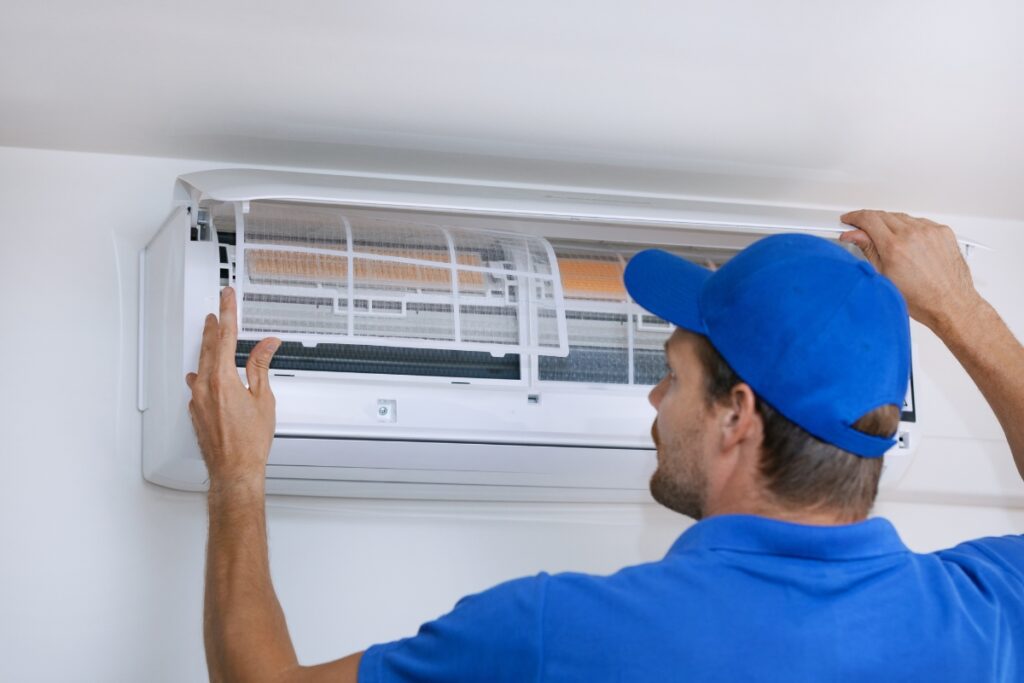
Regular maintenance is crucial for maintaining optimal air quality in your HVAC system. When it comes to HVAC air quality, proper maintenance ensures that you and your family can breathe fresh and clean air in your home. Neglecting regular maintenance can lead to a variety of issues that can impact the air you breathe.
One of the key reasons why regular maintenance is important for air quality is the prevention of mold and bacteria growth. A neglected HVAC system can become a breeding ground for these harmful microorganisms, which can then circulate throughout your home. This can lead to respiratory issues, allergies, and other health problems. By regularly cleaning and maintaining your system, you can prevent the buildup of mold and bacteria and ensure that the air you breathe is free from these contaminants.
Another aspect of regular maintenance that impacts air quality is the cleanliness of your system’s filters. HVAC systems have filters that help trap dust, pollen, and other airborne particles. Over time, these filters can become clogged and less effective at capturing these pollutants. This can result in poor air quality and increased allergies or respiratory issues. Regularly cleaning or replacing your system’s filters ensures that they can efficiently capture these particles, improving the air quality in your home.
Regular maintenance also allows for the detection and prevention of any potential issues that could impact air quality. During maintenance visits, HVAC technicians can inspect the system for any signs of damage or malfunction. By catching these issues early on, they can be addressed before they worsen and potentially affect air quality. Whether it’s a malfunctioning component or a leak in the ductwork, addressing these issues promptly can ensure that your HVAC system operates optimally and maintains good air quality.
In addition to these benefits, regular maintenance helps to improve the overall efficiency of your HVAC system. When your system runs efficiently, it uses less energy to heat or cool your home. This not only reduces your utility bills but also minimizes the environmental impact of your HVAC system. By properly maintaining your system, you can contribute to a cleaner and greener environment while enjoying better air quality.
Strategies to Reduce Allergens and Improve Air Quality
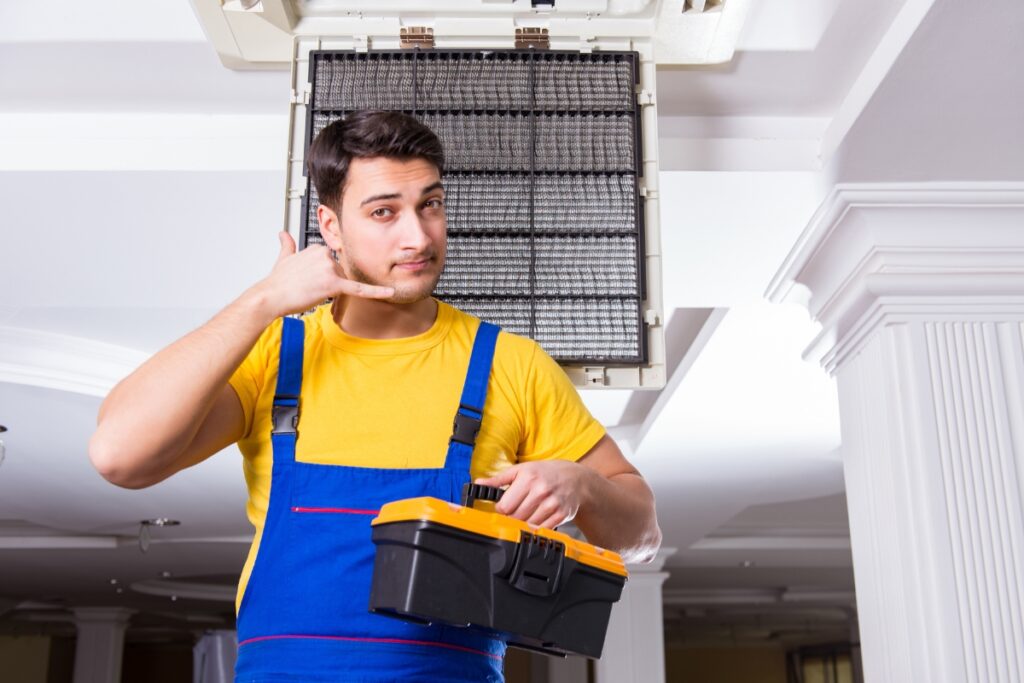
In addition to maintaining your HVAC system, there are several strategies you can implement to reduce allergens and improve indoor air quality. Here are some tips:
Ventilation Techniques to Enhance Indoor Air Quality
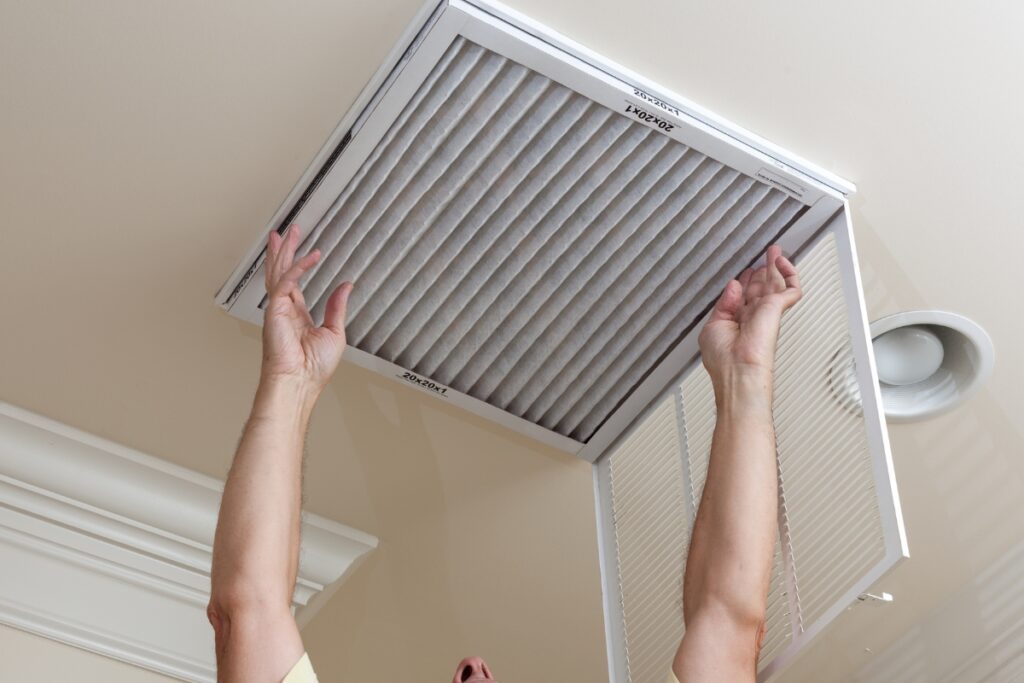
Proper ventilation plays a crucial role in maintaining a healthy indoor environment. With HVAC air quality being a top concern for homeowners, it’s important to implement effective ventilation techniques to ensure fresh and clean air circulates throughout your home. In this article, we will explore some practical methods to enhance indoor air quality.
- Natural Ventilation: One of the simplest and most cost-effective ways to improve air quality is through natural ventilation. Opening windows and doors allows fresh air to enter your home and stale air to exit. This method is especially beneficial during mild weather conditions when outdoor air quality is good. Natural ventilation helps remove indoor pollutants and brings in oxygen, creating a healthier living space.
- Exhaust Fans: Installing exhaust fans in areas prone to moisture and odors, such as bathrooms, kitchens, and laundry rooms, can significantly improve indoor air quality. These fans effectively remove excess humidity, cooking fumes, and other pollutants from the air, preventing the build-up of mold and mildew. Remember to clean and maintain these fans regularly to ensure optimal performance.
- Mechanical Ventilation: Mechanical ventilation systems, such as whole-house fans and balanced ventilation systems, provide a controlled and continuous exchange of indoor and outdoor air. These systems use fans and ducts to distribute fresh air throughout the house and expel stale air. By filtering the incoming air, mechanical ventilation systems can remove allergens, dust, and other airborne pollutants, resulting in cleaner indoor air.
- Air Purifiers: Air purifiers are an excellent tool to enhance indoor air quality, especially for individuals with respiratory issues or allergies. These devices use filters or electronic methods to remove particles, allergens, and contaminants from the air. Consider investing in high-quality air purifiers with HEPA filters to effectively trap even the smallest pollutants, improving the overall air quality in your home.
- Duct Cleaning and Maintenance: Dirty or clogged air ducts can negatively impact indoor air quality. Over time, dust, mold, and other pollutants can accumulate in the ducts, circulating throughout your home. Regular duct cleaning and maintenance are essential to ensure clean and efficient airflow. Hire professional HVAC technicians to inspect and clean your ducts, removing any buildup and improving the quality of the air you breathe.
Conclusion: Achieving Fresh and Clean Air in Your Home
Breathing fresh, clean air is essential for maintaining good health and well-being. Your HVAC system plays a vital role in ensuring optimal indoor air quality. By understanding the impact of indoor air quality on health, choosing the right air filter, and implementing regular maintenance tasks, you can create a healthier home environment for you and your loved ones. By taking these steps and prioritizing HVAC air quality in your home, you can breathe easy knowing that you are providing yourself and your family with fresh and clean air every day.
Call AD Campbell HVAC at (404) 882-8226 or request HVAC services. Let us be your go-to for creating a healthier indoor environment where the air is as refreshing as it is clean.


